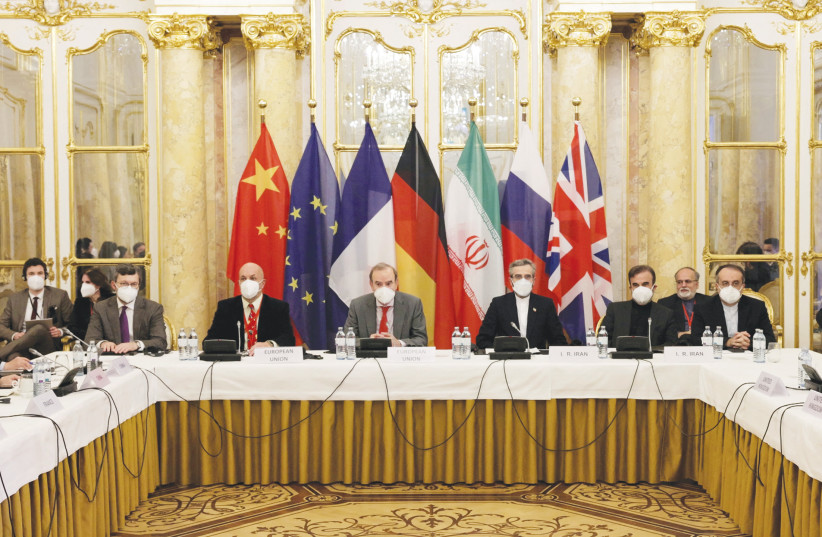Iran got a much better result in the nuclear talks than expected, the head of Russia’s delegation Ambassador Mikhail Ulyanov told Iranian media over the weekend.
“I am absolutely sincere in this regard when I say that Iran got much more than it could expect, much more,” Ulyanov told Iranian news outlet IRNA. “Realistically speaking, Iran got more than frankly, I expected or others expected. This is a matter of fact.”
Ulyanov said that Iran fought for its interests “like lions… for every comma, every word and as a rule quite successfully.”
In addition, the ambassador said that Russia and China worked well together in the talks.
“I can recollect dozens of such cases when, on rather serious significant questions, we managed together to get positive results, close to what we wanted to achieve,” Ulyanov stated.

Ulyanov’s remarks came as the negotiations for Iran to return to the 2015 Joint Comprehensive Plan of Action nuclear deal appeared to be near their end.
Among the concessions to Iran that Israel has been concerned about are allowing Iran to keep its advanced centrifuges even when they are out of use, and lifting the designation of the Islamic Revolutionary Guard Corps as a terrorist organization by the US, as well as rescinding all sanctions placed by the previous US administration, including those put in place due to terrorism and human rights violations.
The Western parties to the talks - US, UK, Frances and Germany - rejected a suggestion to have the centrifuges transferred to Russia for safekeeping until the agreement expires, because they do not trust Russia, KAN reported.
Last-minute demands by Moscow that the US and Europe carve out an exception from Ukraine-related sanctions so that Russia can trade with Iran are delaying the renewal of the JCPOA.
US Secretary of State Antony Blinken sought to dispel talk of such obstacles on Sunday when he said that the sanctions imposed on Russia over Ukraine had nothing to do with a potential nuclear deal with Iran.
"These things are totally different and just are not, in any way, linked together. So I think that's irrelevant," Blinken said in an interview with CBS's "Face the Nation" show. He added that a potential deal with Iran was close, but cautioned that a couple of very challenging remaining issues were unresolved.
Yet a senior Iranian official told Reuters earlier that Tehran was waiting for clarification from Moscow about the comments from Lavrov, who said Russia wanted a written US guarantee that Russia's trade, investment and military-technical cooperation with Iran would not be hindered in any way by the sanctions.
Also over the weekend, Iran and the International Atomic Energy Agency reached an agreement by which the former will provide information to the nuclear inspectors by March 20. That information could begin a process of determining whether to close the agency’s probe of potential military dimensions of Iran’s nuclear program at the IAEA Board of Governors meeting in June.
Israeli Prime Minister Naftali Bennett called the weekend’s developments “significant and positive.”
“The head of the IAEA, Rafael Grossi, visited Tehran and decided not to give in to the Iranian demand to close the open cases under political pressure,” Bennett said at Sunday’s cabinet meeting. “This is an important, professional decision by the agency and Grossi, who did not give in to Iranian pressure.”
Bennett added that the JCPOA’s “disadvantages far outweigh its advantages.”
“In any case, the agreement does not obligate Israel in any way,” he said.
Israel opposes a return to the JCPOA, which it did not support when it was first reached in 2015. Among the arguments Jerusalem has made against the deal is that it expires too soon - most of the restrictions and sanctions on Iran’s nuclear program expire in 2025 - and the immediate lifting of sanctions will flood the Islamic Republic with cash that it can spend on proxy warfare.
